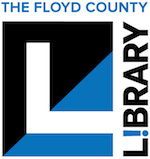December is…all the holidays:
Christmas, Kwanzaa, Hanukkah, Winter Solstice, New Year’s Eve
Is it coincidence that these holidays fall at the same time of the year? What do these special celebrations have in common?
Winter Solstice
The winter solstice has been a significant time of year in many cultures since pre-history. It has been celebrated with special rituals and festivals.
The solstice is the point in our calendar year when there is the shortest number of daylight hours in a 24 hour period. Long ago, people in Europe thought the dark and cold time of the year was symbolic of death and then rebirth of the Sun. Some ancient monuments such as Stonehenge are aligned with the sunrise or sunset on the winter solstice.
In the ancient Roman calendar, December 25 was the date of the winter solstice. Liturgical historians generally accept that the winter solstice had some influence on the choice of December 25 as the date of Christmas.
Hanukkah
Hanukkah is a Jewish festival of lights, commemorating the recovery of Jerusalem and the rededication of the Second Temple at the beginning of the Maccabean Revolt against the Seleucid Empire in the 2nd century BCE. The story goes that when the Maccabees re-lit the Temple’s candles with holy oil, there was only enough for one day. However, the miracle was that the oil kept the candles burning for eight days.
Hanukkah is observed for eight nights and days, starting on the 25th day of Kislev according to the Hebrew calendar. (This may occur at any time from November 28 to December 27 in the Gregorian calendar.)
Hanukkah has become a more celebrated Jewish holiday in the USA and is seen as a “Jewish Christmas.”
Kwanzaa
Kwanzaa is a celebration observed from December 26-January 1 each year. It is a time for families and communities to come together to remember the past and to celebrate African American culture.
Created in 1966 by Maulana Ron Karenga, the ideas and concepts of Kwanzaa are expressed in the Swahili language, one of the most widely spoken languages in Africa.
The seven principles are from values found throughout the African continent. These principles are: Umoja (Unity), Kujichagulia (Self-Determination), Ujima (Collective Work and Responsibility), Ujamaa (Cooperative Economics), Nia (Purpose), Kuumba (Creativity), and Imani (Faith).
Kwanzaa gets its name from the Swahili phrase, “matunda ya kwanza” and is rooted in first fruit celebrations which are found in cultures throughout Africa both in ancient and modern times.
Candle lighting is part of the ceremony each evening. The candle lighting ceremony invites teaching and learning about the seven principles. The first night, the black candle in the center is lit (and the principle of umoja/unity is discussed). One candle is lit each evening and the appropriate principle is discussed.
In December 2022, New York City Mayor Eric Adams, Reverends Al Sharpton and Conrad Tillard, businessman Robert F. Smith, Rabbi Shmuley Boteach, and Elisha Wiesel joined to celebrate Hanukkah and Kwanzaa together, and combat racism and antisemitism, at Carnegie Hall. (https://en.wikipedia.org/wiki/Hanukkah)
Christmas
Christmas is an annual festival celebrating the birth of Jesus Christ, and is observed on December 25. It is a religious and cultural celebration among billions of people around the world.
There are different hypotheses regarding the date of Jesus’s birth. In the early fourth century, the church fixed the date as December 25, the date of the winter solstice in the Roman Empire. (https://en.wikipedia.org/wiki/Christmas)
Interestingly, the birth of Jesus was not always a big celebration. In the Early Middle Ages, Christmas Day was overshadowed by Epiphany, which in western Christianity focused on the visit of the magi.
New Year’s Eve
New Year’s Eve, also known as Old Year’s Day, is the evening or the entire day of the last day of the year, December 31. In many countries, New Year’s Eve is often celebrated with dancing, eating, drinking, and watching or lighting fireworks.
Watch Night services are observed by many Christians around the world as a way to express gratitude for the old year, while asking God’s favor in the new year.
Watch Night services took on special significance to African Americans on New Year’s Eve 1862, as slaves anticipated the arrival of 1 January 1863, when the Emancipation Proclamation became effective.
As always, you can learn more about all of these holidays by visiting the library. Our friendly staff can point you in the direction of research materials in print and in our databases. With your library card, information is just a few keyboard clicks away!
From your own computer you can log into a comprehensive lifelong learning library for Hoosiers. Click this link: Inspire.

